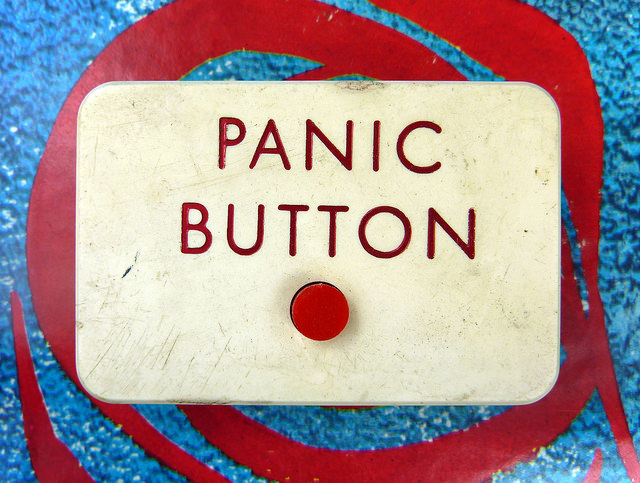
No one wants to be a forced seller in a panic. So how does anyone get into that situation? ?Two things: bad planning and a bad scenario.
Let’s start with the obvious stuff: the moment you start using leverage, there is a positive probability of total failure, and more leverage increases the probability. ?Other factors that raise the probability are lack of diversification of assets, a short term for repayment on the leverage, a run on the bank, or restrictive rules on what happens if your assets decline too much in value.
For the big guys, I think that covers most of it. ?With little guys, there is one more painful way that it happens, with insult added to injury.
Assume the man in question has no formal leverage, except maybe a mortgage on his house. ?He has a stock portfolio, and like many, has bought popular stocks that everyone thinks will do well. ?Then a?significant panic hits the market because enough corporate or banking debts are incapable of being repaid.
The value of his portfolio falls a lot, but he doesn’t sell or worry immediately, because he has a solid job and has a buffer of a few months expenses set aside. ?Then the shock hits. ?In the midst of the panic he faces one of the following:
- The loss of his job (or severe trouble in his business)
- Disability with no insurance
- An uninsured casualty of some sort
- Divorce
- Health problems not covered by insurance
- Death (and his wife has to pick up the pieces)
- Etc.
Guess what? ?Even though he planned ahead, the plan did not consider true disasters, where two things fail at the same time. ?His buffer runs out, and in order to live, he has to sell stocks at a time when he thinks they are undervalued.
This happens to some degree in the depths of bear markets, because unemployment and credit panics are correlated. ?Other contingencies may not be correlated, but a certain number of them happen all the time — the odds of them happening when the stock market is down is still positive.
What can be done? ?Here are a few ideas:
- Hold a bigger buffer. ?Maybe toss in some high quality long bonds, as well as cash.
- Reduce fixed commitments.
- Insure most reasonably possible large insurable contingencies — death, disability, health, liability, etc.
- Keep a rolling hedge of protective puts (costly)
- Increase portfolio quality and diversification to lessen the hit.
The time plan for a flat tire is before you have one. ?As an example, I keep wrenches that are better than what the automakers put in their tire changing kits in my cars. ?The same is true for financial disasters. ?The planning is best done in the good times, like now. ?Consider your financial and personal risks, and adjust your positions accordingly, realizing that no one can survive every panic. ?Eventually you have to trust in God, because no earthly security system is comprehensive.

One thought on “On Being A Forced Seller in a Panic”